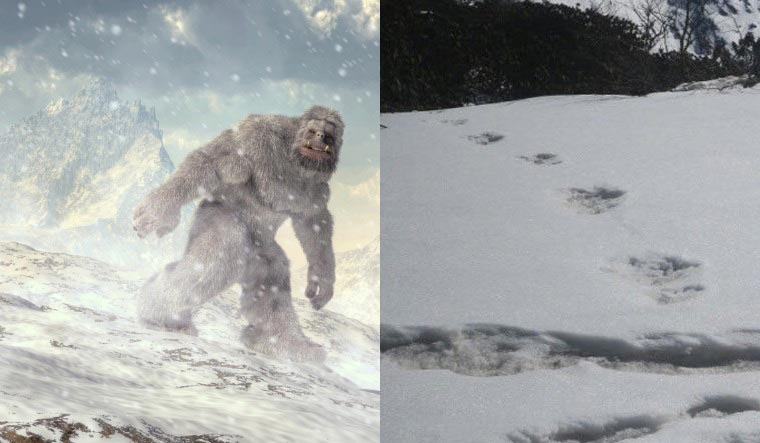The official Twitter handle of the Indian Army created a buzz on social media late on Monday night for distinctly 'non-military' reasons.
For the first time, an #IndianArmy Moutaineering Expedition Team has sited Mysterious Footprints of mythical beast 'Yeti' measuring 32x15 inches close to Makalu Base Camp on 09 April 2019. This elusive snowman has only been sighted at Makalu-Barun National Park in the past. pic.twitter.com/AMD4MYIgV7
— ADG PI - INDIAN ARMY (@adgpi) April 29, 2019
The Indian Army tweeted that its mountaineering expedition had spotted “mysterious” footprints of the mythical Himalayan 'abominable' snowman (popularly known as the Yeti) close to the Makalu base camp in Nepal on April 9. The Indian Army tweeted that the footprints measured “32 x 15 inches” and added the “ elusive snowman has only been sighted at Makalu-Barun National Park in the past”.
The claims have set off speculation, ranging from whether the Indian Army has really found Yeti footprints or whether it was just a prank. For one, Twitter users pointed to the fact that the footprints appeared to be that of a single foot. However, the buzz created by the Indian Army's tweet proves fascination for the Yeti continues despite little concrete proof confirming the snowman's existence. The myth of the Yeti, revolving around an imposing apelike creature that was larger than humans, has its origins in Sherpa folklore.
Nearly a 100 years ago, explorers to the Himalayas discovered footprints suspected to be that of a Yeti. According to the BBC, British explorer Charles Howard-Bury discovered mysterious footprints while on an expedition to Mount Everest in 1921. Howard-Bury is credited with coining the term 'abominable snowman' for the Yeti.
Mountaineer Reinhold Messner is probably the most famous Yeti hunter of all. He claimed to have seen one in the 1980s and led several expeditions to the Himalayas. However, Messner concluded the Yeti was a bear and not an apelike creature. In 2014, genetic analysis by researchers at Oxford University of hair and bone samples purportedly belonging to Yetis found similarities to the DNA of a polar bear.
Despite scepticism from scientists, claims of Yeti sightings continue and the Indian Army's tweet may just have boosted interest in the mythical creature.


